Unpacking Our Library
Conversation with Jim Nolte – Director, and Tia McCarthy – Associate Director of The VCFA Library
“How many cities have revealed themselves to me in the marches I undertook in the pursuit of books!”
Walter Benjamin. Translated by Harry Zohn, “Unpacking My Library”, Illuminations (New York: Schocken Books 1969) 63
What type of backgrounds do you each bring to your work as stewards of the VCFA library?
J N: I’ve been working in libraries for 53 years, starting at the age of 14. I have a MLS and I was present as libraries made the transition from purely physical to digital. I became an expert in digital libraries before I came to Vermont College. Because my background was remote librarianship it was fairly easy to structure our program to match the school’s.
T M: My book background is deep but my library background is less so. I’ve worked in publishing. There was a very small independent publisher here in Montpelier and I worked there in various capacities, including editing. I was the assistant publisher at one point – many hats were worn during my time there.
The library is closed to the public but you are still in operation there in person?
J N: We have a skeleton crew keeping the library running – one person at a time – we process mail there. We actually quarantine the mail: pick it up with gloves, bring it into our building and let it sit for three days. All of that is based upon the guidelines issued by the ALA (American Library Association) to try and keep libraries safe.
Resource sharing is a huge part of every library’s world and so the Library Association wants to be sure that we have all the information that we need to be safe. We follow those rules and then we repack the books and are mailing them out all over the world just as always.
We are able to go with the flow and keep the services we have normally offered going pretty much uninterrupted. Which is phenomenal and entirely due to the willingness of people to go in and do that work: Juliet Stephens, Circulation Manager, and Library Technicians – Lennie DeCerce, Valentyn Smith, and Ma’ayan D’Antonio.
A lot of libraries are closed right now. No mail in, no mail out. Tens of thousands of libraries have shut their doors. Libraries are people based – there isn’t much we can do in a Covid world. So libraries knowing that, have thrown up their hands and gone home.
But we have not.
What are the demands on a library within a low residency academic setting in general, and what is different now?
T M: Not having people in is obviously a huge part of it – but we have been focusing more on digital offerings that we can provide, not just for our students, but faculty and staff as well. Over the summer we initiated a new e-reader platform for the whole community called OverDrive. Our students now have instant access to thousands of titles that they can read online either on their computer, their tablet, or whatever mobile device they might have. That was a big thing for us.
We have also been building a database of free online and open access resources specific to each program, as well as some general reference resources that anyone can use. There is so much out there that we didn’t even know about. We are constantly updating that. It has been a really fun project.
J N: This is a time for us to focus on some of the clerical work that is set aside when someone asks us to help with research. We still help with research. I think that’s an important point for us to make, that although we don’t know as much as you do about a topic, we know a lot about libraries. Our goal is to help you translate your inquiry into the system that is a library – we are still doing all of that.
Do you find yourselves collaborating more with libraries across the country and around the world in creating and accessing these resources?
T M: Indirectly, yes, absolutely. We are finding that there has been a lot of work done previously but a lot of places are obviously in straits like us. They are bumping up what they can do. The New York Public Library for instance has been working really hard digitizing the physical materials that they have and there are lots of places making access free that normally would have been behind a paywall. Jstor and Project Muse for instance were two data bases we subscribed to on a limited basis and they have made everything open for several months now. Jstor has continued that access.
Lennie DeCerce, one of our Library Technicians who does most of our interlibrary loan work, now has been doing a lot of direct contact with libraries when we are having trouble finding things that students are requesting through the catalog. Libraries tend to be collaborative anyway and we are seeing a lot of people stepping up and doing as much as they can for everybody.
J N: I know that Juliet Stephens, the Circulation Manager, ended up doing a lot of correspondence with our lenders, working out arrangements for books that can’t be sent back yet or to send books back. She has had to do a lot more contacting whereas in the past a lot of it was automated. There might be even more of a human factor these days.
And the electronic resources allow us to sidestep the labor intensive mail process. So as long as our students are willing to read in an online format we can get an awful lot these days. But not everything by any means, especially when we are dealing with writers who need deep research. Many of their resources are not digital and we are still doing that work. Our answer to one student who was doing research, was to get microfilm sent from another library. We are always doing things like that.
T M: The nice thing is that there are enough libraries physically open that our interlibrary loan requests have been pretty much uninterrupted through all of this uncertainty that has surrounded us. We have been able to do a remarkable amount since March. It’s been kind of amazing actually.
J N: It’s partly that we were already in that mode in a sense. We were serving so many students remotely already, that we had a process and procedures in place that we have come to rely on more than we did before.
Are there things you are doing now that you may continue doing when the Library reopens for in-person use?
J N: OverDrive is a great example. That, we hope, will stay with us, along with some more electronic resources.
If you are looking for examples of things that have changed, one of the things that we were able to say in the past was: we aren’t going to force you into reading online, if we can get you a book, we will get you a book. In a way that’s still true, but we may not have as much success, or it may not come as quickly – we might not be able to get it as fast. Now, in some cases, the only way we can provide some materials through the library service is electronically. I very much believe that people deserve to read in the medium they are comfortable with. During Covid we don’t have that much flexibility, but when we return to the building, I believe that we will extend that same offer.
T M: When everyone else is back in the building, everything that we have been developing now will be in addition to, and not in place of, our traditional resources and services that we have always offered.
J N: And we have had this opportunity to adjust our collection a little. We have been able to collect titles more focused on our school’s offerings, for example, adding a fair number of books in visual art.
TM: We are in the middle of a big project now actually. A large, anonymous donation of books came our way from an art teacher. We didn’t have much in our collection in ceramics and now we have some twenty new titles including some classic pottery books, which I was excited to find as a hobbyist potter!
What would you like the VCFA community to know about the library that we may not know?
J N: We have always offered interlibrary loan and we will take any kind of request. We usually have very good luck, and now with electronics, we have pushed our numbers higher and higher. When we were just doing paper we were well over a 95% success rate on requests. It’s more difficult perhaps now, but we still do that, and I think we are above 95% success in filling requests.
T M: Our services have been uninterrupted.
J N: Business as usual is a good catch phrase. We may be able to help some people who have been closed off and away from library service. Because of Covid, people accustomed to local resources may not have them now, and hopefully, we can step in and fill that gap as well. They can use us the way they would use their local library.
J N: We have Artstor, an extensive image database. I think all the programs are equally served by our offerings.
T M: We are here seven days a week, probably 360 days a year, always able and ready to help all of our community, students, staff and faculty. We are continually adding new resources and we are very eager to jump in on any research question people have. We have even done Zoom meetings with students who needed it and phone consultations which we are also available for. We have always been here, we are still here. And we will keep doing what we are doing.
Everybody should know that anything we have in our library’s collection we can send; we are still shipping things because that service has not been interrupted. Anything we have done over the years we are still doing. Anything people request we can mail to them, and they can mail it back to us, postage paid.
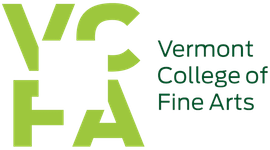

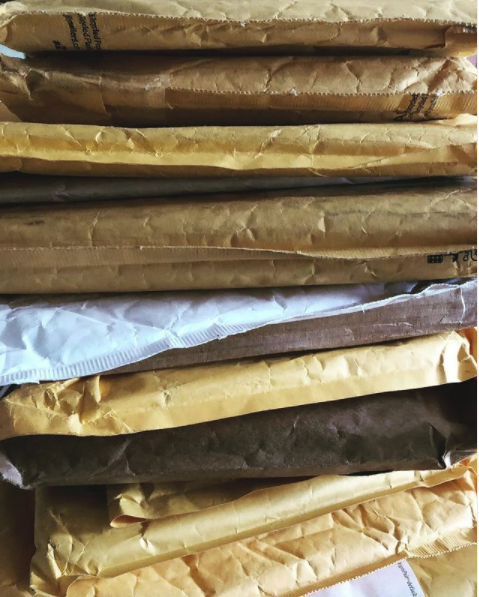
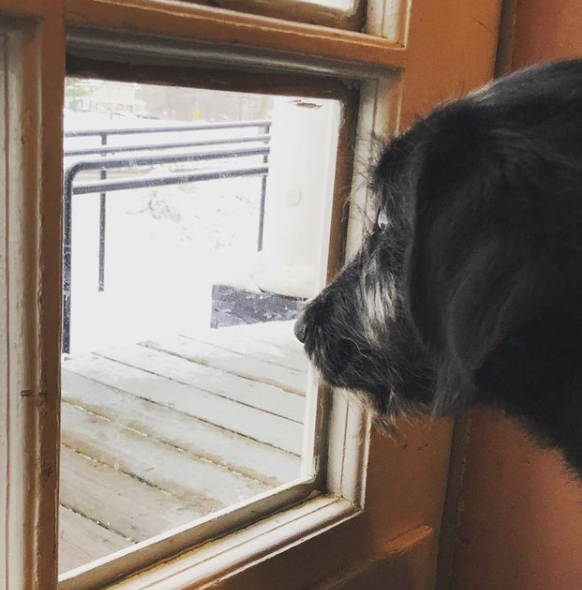
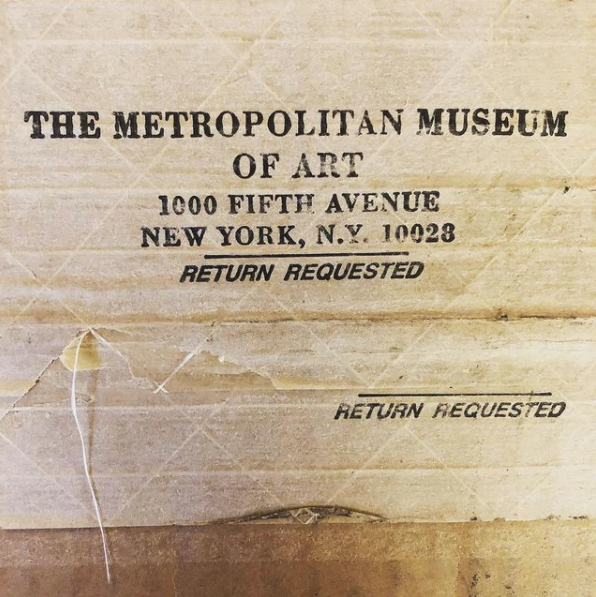
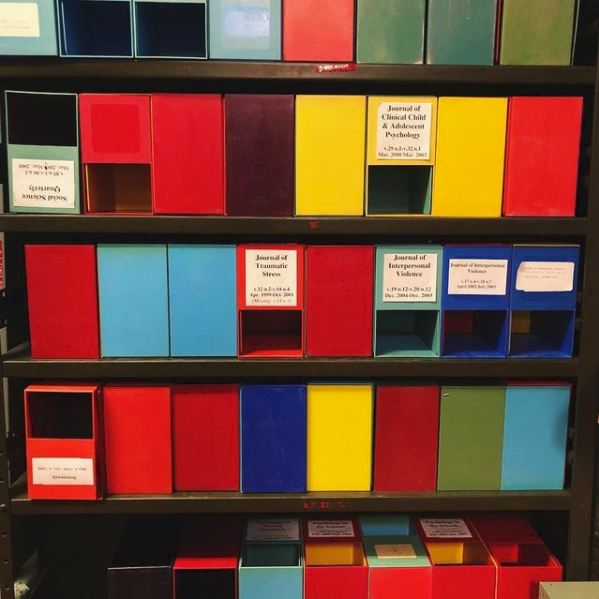
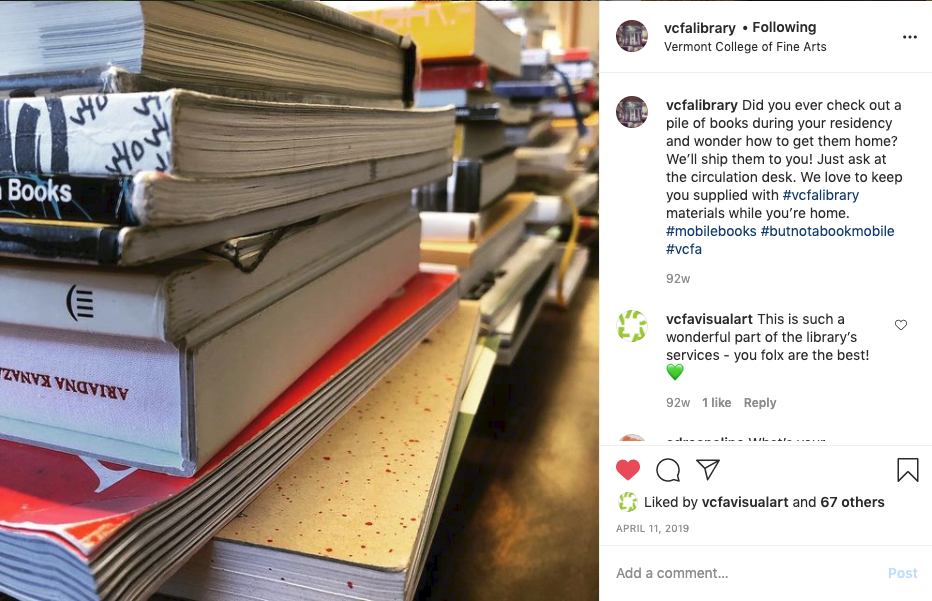
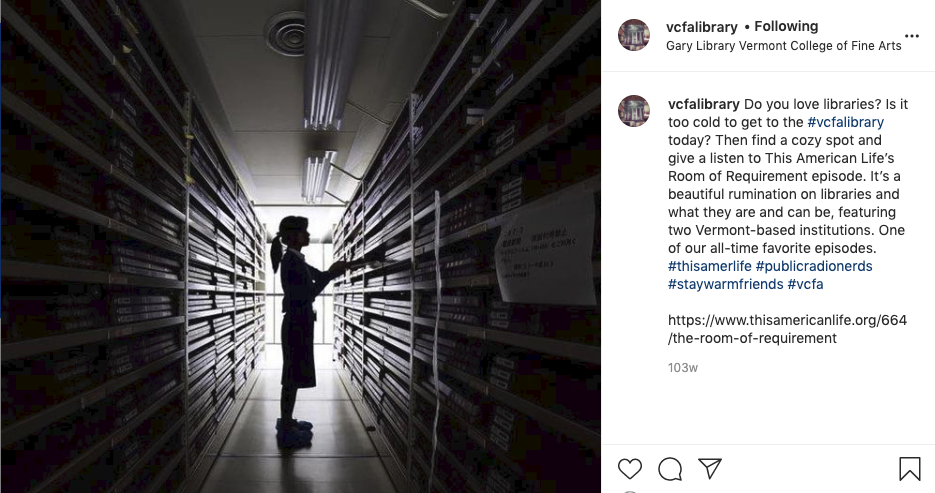


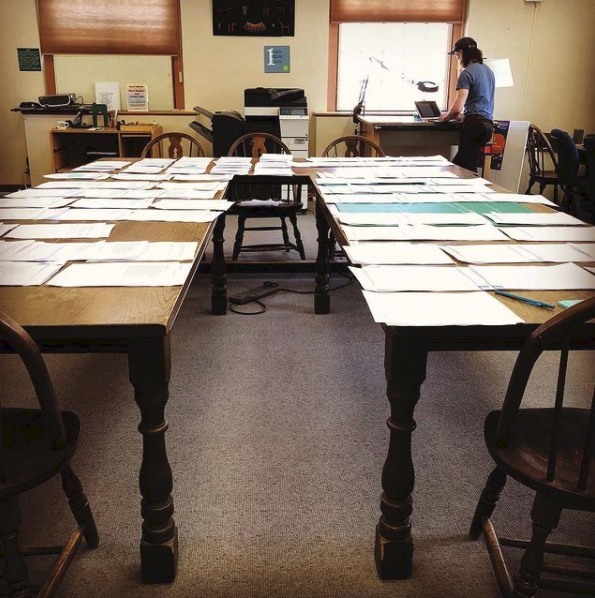
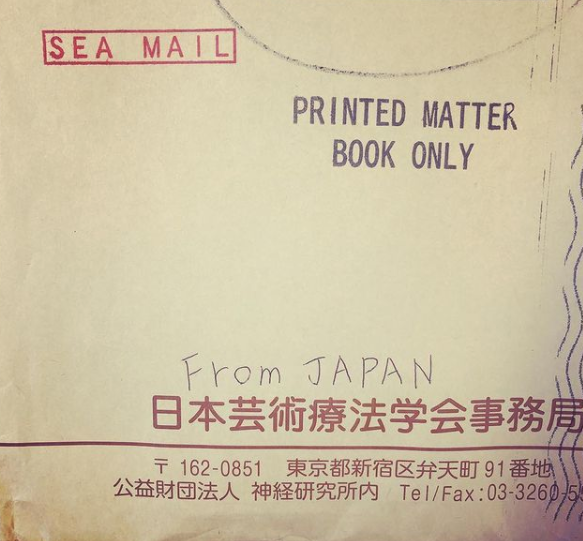
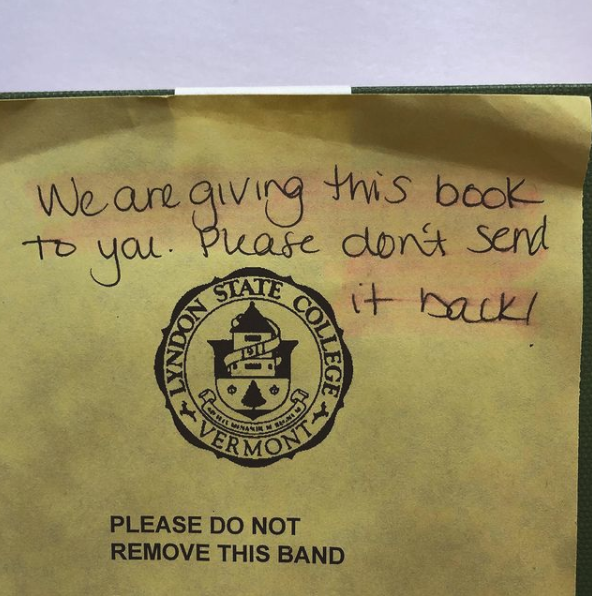
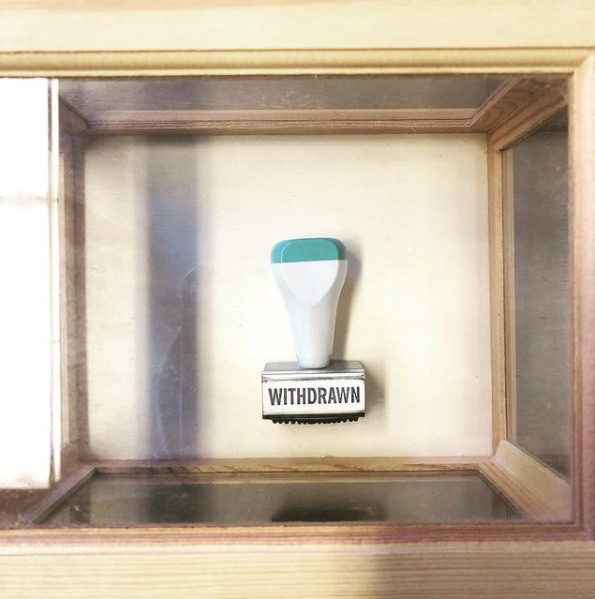

 Artists Against Fascism (AAF)
Artists Against Fascism (AAF) Heidi Blunt (W 21)
Heidi Blunt (W 21)